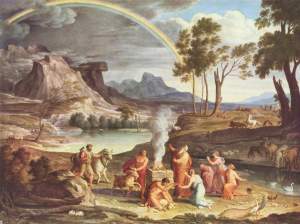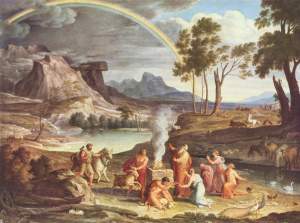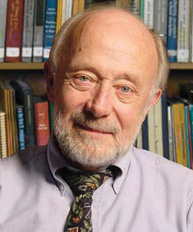
Mark 8:34-38
34 And He summoned the crowd with His disciples, and said to them, “If anyone wishes to come after Me, he must deny himself, and take up his cross and follow Me. 35 For whoever wishes to save his life will lose it, but whoever loses his life for My sake and the gospel’s will save it. 36 For what does it profit a man to gain the whole world, and forfeit his soul? 37 For what will a man give in exchange for his soul? 38 Those who are ashamed of me and of my words in this adulterous and sinful generation, of them the Son of Man will also be ashamed when he comes in the glory of his Father with the holy angels.”
This passage in Mark, is one of my favorites. I have mulled it over for many years, coming to different interpretations as I have grown in my ability to understand scripture and matured in my spiritual life. As a result, I have come to the belief it is an important passage because in it lies a key to understanding our veneration of the cross and what Jesus has called us to be.
I am a member of the Westar Institute, a group of theology scholars who study the scripture to find our theological history and discover the true words of Jesus, often called the Jesus Seminar. Not that I do any of that, but I do attend meetings and follow the findings of those who are much better scholars than I am. This past March I attended a lecture by Dr. Arthur J. Dewey at Westar’s Spring Meeting. Dr. Dewey’s lecture was on how the Death of Jesus was remembered. His studies of the crucifixion added a new piece to my understanding of the paradox of the cross. In fact, it changed the way I interpret Jesus’ death on the cross.
First, we must remember Jesus was Jewish, he was not Christian, he was not a Roman, and he wasn’t a gentile of any kind. What He was, was a good, a very good, practicing Jew. And, he knew the meaning of the cross. In the Roman world the cross was a tool of execution for those who defied Rome in some way. It was an instrument of humiliation, torture, and a means to wipe the condemned-out of memory, out of history. After all who would want to admit they knew or were related to someone who died on the cross.
Jesus knew all that, because wherever he went he would have seen the cross with its victims hanging from its arms, big billboards that said; ‘stay in line or this will happen to you.’ Jesus knew if he preached a radicle way of life, a life that would completely change how we live in the world, he would die on that cross. Oh yes, Jesus understood. The Gospel writers knew because they wrote their Gospels to give courage to those who risked their lives by following The Way.
Throughout our church history we have been taught Jesus’ death on the cross is our salvation. We are saved from sin if we believe Jesus died for us on the Roman cross. We are told if we bear our troubles with bravery, confess our sins, and accept that Jesus took those sins away by dying on the cross we will be saved from Hell and its horrors. It is in the power of the cross to save us. What if I told you that is most likely not what Jesus meant?
It is believed Mark was the first Gospel written and that Matthew and Luke copied Mark for their Gospels. What I first found interesting in each of the versions is that Jesus is telling the disciples and the crowd if they want to follow him they must take up a cross, embrace the cross. And, if they denied him and tried to save their lives, they would end up losing their life.
My first inkling that there is more to the scripture than we have normally understood was when I realized that in the synoptic Gospels Jesus doesn’t carry his cross to Golgotha, Simon of Cyrene is pressed into service the minute Jesus is escorted out of the Roman Garrison. In addition, there is a fifth Gospel not included in our cannon, which we have only fragments of, the Gospel of Peter. Fortunately, what did survive was the Passion of Jesus. Dewy and John Dominic Crossan both believe that the Gospel of Peter was written before Mark and represents the earliest beliefs of Jesus’ death and resurrection. They also believe Mark used the Gospel of Peter in writing his Gospel. As the Gospel of Peter tells it, when Jesus is led from the Garrison he is made to ‘run’ to the place of the cross and if he is running he could not have been carrying the heavy beam he was to be nailed to. Mark, and subsequently in Matthew and Luke, follow Peter by not having Jesus carry the cross. So, if in these 4 gospels Jesus doesn’t actually “take up” his own cross what are we supposed to do with the cross? What is the meaning Jesus is trying to make?
Jesus was a teaching a radicle way of life, one that had the power to transform peoples lives and the entire world, if only his disciples were brave enough to follow him. Charles Hambrick-Stowe says:” There is no great theological meaning in martyrdom for an ideal or in death that otherwise results from force, injustice, misunderstanding, or accident.” If the cross doesn’t mean, we will be saved because we carry our burdens like a cross or die because we believe it brings our salvation then it must mean something else.
Ched Myers, in Binding the Strong Man, a political reading of Mark’s story of Jesus, offers 3 meanings that have changed how I understand the cross.
1) “deny yourself;” This isn’t a call to spiritual reflection, this is a call to stand in court, accused of sedition, and not saving yourself from death. It is not denying Jesus, but our own self-denial, we willingly risk our own lives. And, to save our lives we must lose it in the name of Jesus and the Gospel.
This isn’t a self-emptying, this isn’t a spiritual awakening, it is taking up the “cross” and walking to yours and my crucifixion to right injustice. This is not a theological understanding, rather this is a radicle political stand where we put ourselves between the other and danger. It is being in a court of law and given the choice of saving your life or going to the gallows in the name of Jesus. Jesus puts this in economic terms. “What does it profit a man to gain the whole world but loses his soul.” To renounce Jesus in or to try to redeem one’s life would be a “bad investment”; for even if it showed a ‘return’ of the whole world, it wouldn’t represent a profit; rather it would be a dead loss; double-jeopardy; fidelity to Jesus has no price.; Everyone has a ‘price,’ everyone that is except Jesus. Jesus revealed that his messiahship means political confrontation with, not rehabilitation of, the imperial state. Those who wish to follow Jesus will risk the test of loyalty under interrogation by state authorities. If self is denied, the cross will be taken up, a metaphor for capital punishment on grounds of insurgency.
2) “take up the cross;” “here Mark’s subversive narrative bursts into the open.” This is a political statement, there is only one purpose for the cross and that is public execution and the total humiliation of its victims. The way Mark writes this phrase is to invite the disciples and those who follow Jesus to share the consequences of the audacity of challenging Roman authority. The Cross symbolizes shame for the convicted and his family. It served the purpose of wiping out the person from memory. Mark’s readers would have understood the implication of Jesus’ words. They would have seen people on the cross, some, if not most, would have had family members or acquaintances crucified. The cross isn’t a representation of salvation, it is symbol of resistance.
3) “follow me;” To follow Jesus means a self-denial that puts our earth-bound lives at risk while saving our souls. This isn’t by being pious, rather it is by getting down and dirty in the trenches of Justice. When we take up a cross it only appears to be a defeat, a triumph of government and their supporters, but actually it is our vindication and their Judgment. We either stand with Jesus, deny ourselves and loose our lives for his sake and the gospel’s or we stand “ashamed” before Jesus and “the angels.” By resisting our fear of losing our lives and pursuing the kingdom of God even at the cost of death, we are contributing to the shattering of the powers’ who reign death over us.
The faith we profess is not a faith of inaction, Jesus told his disciples he didn’t come to bring peace he came to bring a sword. That sword is our bodies standing for the defenseless and speaking and writing for speechless.
These passages in Mark, Matthew, and Luke are not calls of salvation, they are calls to action. We are called to stand between the victims and victimizer. We are called to defend what is right and resist injustice, hate, and cruelty all in the name of Jesus. Jesus knew death on the cross was inevitable, but he did not deny his Father, he refused to back down when it came to overcoming injustice. That is what the call of the cross means. We hold the cross up as a symbol of fighting against injustice, stand for compassion, love, and mercy. The symbol of the cross in today’s world is not passé nor is standing between the voiceless and accuser. Today people are arrested for trying to protect immigrant children and their parents. They are defending women, immigrants, members of LBGTQ community and people of color who are under attack. People are lifting up their voices in a chorus demanding that our rights be preserved. You are those people, I know many of you have marched, spoken up, and cared, for the defenseless. We are a community that has heard the call and have responded, young or old we stand up to be counted.
Today, our world continues to be torn apart by those who would have us believe that the defenseless have no rights, we must continue to choose to take up our own crosses, in whatever way we are able to. We must be willing to defend the undefended, to feed the hungry, to clothe the naked, provide homes for the homeless, and welcome the strangers who come to us. To spread the word that injustice has no part in our world by writing, speaking, marching, and screaming if we must. We must act despite opposition by those who in denying Jesus and his call continue to harm the defenseless and the voiceless and dismember the freedoms we have gained over in 250 years.
Jesus did not teach us a faith of only contemplation, it is also a faith of rebellion. None of this is an easy choice to make, but choosing the radicle life Jesus lays out for us has never been easy, otherwise our world would be a very different place. In the last 2000 years only a few have had the courage to accept that challenge. All of them met death knowing they were faithful to Jesus’ teachings.
We too have challenges to accept and while we won’t me hung on a cross, and hopefully not face physical death, we could be destroyed financially or socially. The good news is every time someone accepts that challenge we get closer to be the community we were meant to be. Yes, contemplation is very important, without it we would be unable to hear God and Christ give us the strength to carry on. But contemplation without action is a withdrawal from the world, of saving only ourselves and a denial of the ministry given to us.
Ruth Jewell, ©August 8, 2018, To Take Up The Cross is adapted from a Sermon I preached at Queen Anne Christian Church, July 15, 2018
Dewey, Arthur J.; Inventing the Passion, how the death of Jesus was Remembered, Polebridge Press, Salem OR, 2017
Myers, Ched; Binding the Strong Man, a Political Reading of Mark’s Story of Jesus, Orbis Books, Maryknoll, NY, 2008, 20th anniversary edition
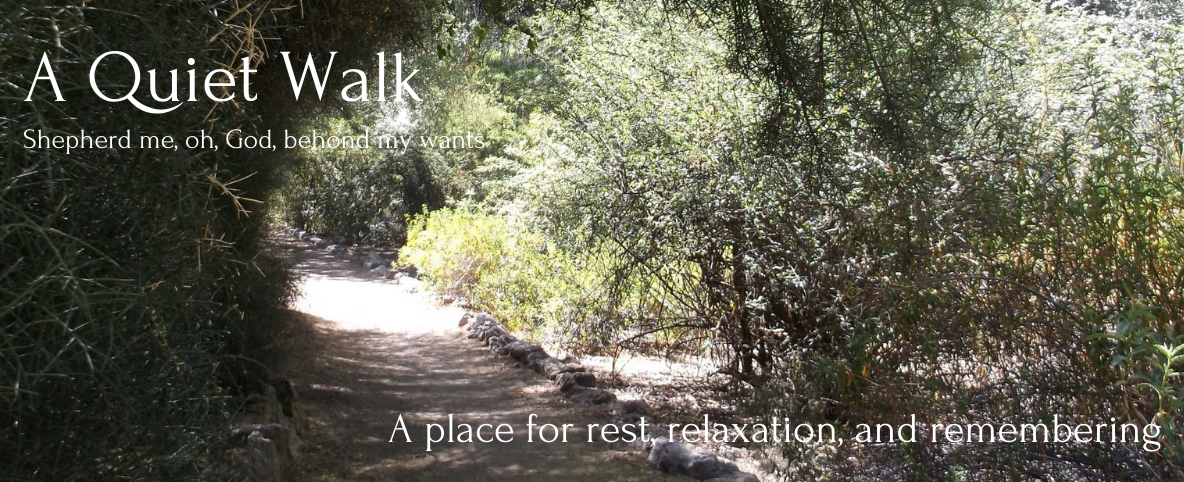






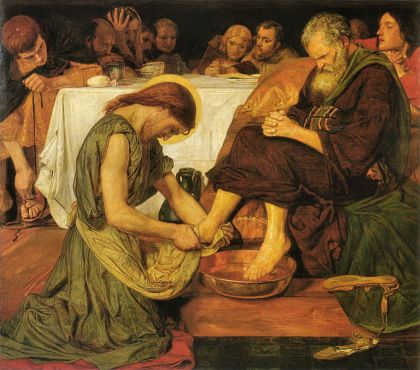 Jesus Washing Peters Feet
Jesus Washing Peters Feet



